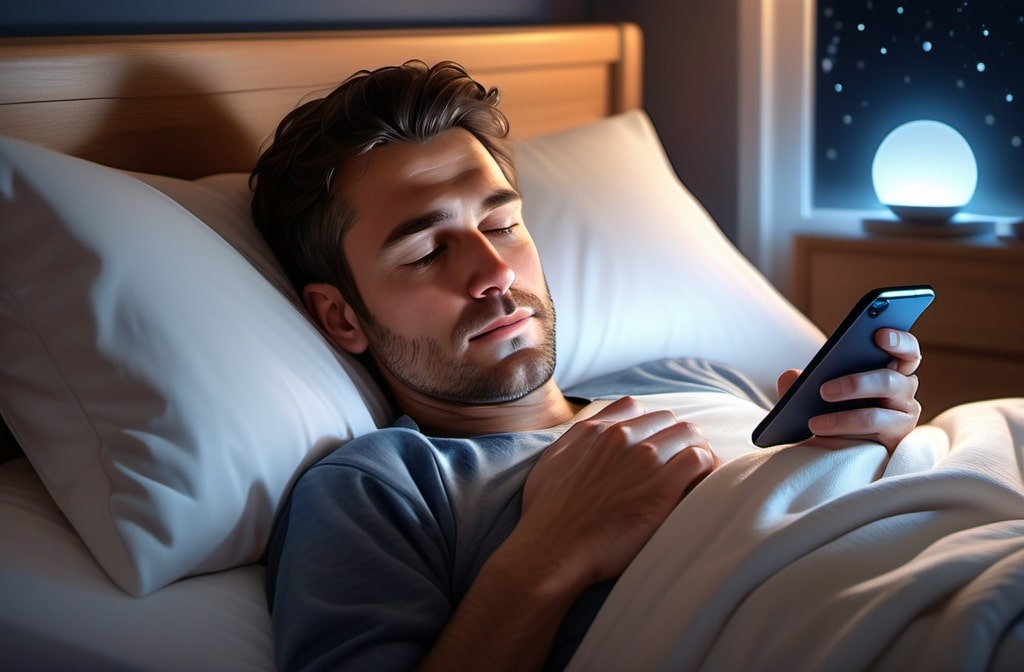Hey there, let's talk about something that affects nearly all of us these days - screen time, especially before hitting the hay. We're all guilty of it, right? Scrolling through social media, binge-watching our favorite shows, or catching up on work emails late into the night. But have you ever stopped to think about how this habit might be impacting your sleep?
The Connection Between Screen Time and Sleep
As it turns out, the connection between screen time and sleep is pretty significant. You see, our digital devices emit something called blue light. This particular type of light can be really disruptive to our body's natural sleep-wake cycle, also known as our circadian rhythm.
Here's how it works: as it gets darker at night, our bodies start producing a hormone called melatonin. Melatonin is like our body's natural sleep signal - it tells us it's time to wind down and get some rest. But when we're exposed to blue light from our screens, it can suppress our melatonin production, making it harder to fall asleep and stay asleep.
The Impact on Sleep Quality
And it's not just falling asleep that's the problem. Screen time before bed can also impact the quality of your sleep. Studies have shown that people who use electronic devices before bed tend to take longer to reach a deep, restorative stage of sleep. This means that even if you're getting a full eight hours, you might not be getting the full benefits of a good night's rest.
What Can You Do About It?
So, what can you do about it? Well, the obvious answer is to limit your screen time before bed. Most experts recommend putting away your digital devices at least an hour before bedtime. This gives your body a chance to start naturally producing melatonin and signaling that it's time to sleep.
But let's be real - in today's world, completely cutting out screens before bed isn't always realistic. If you must use your devices in the evening, there are a few things you can do to minimize the impact on your sleep:
Use night mode or blue light filters
Keep your devices out of the bedroom
Use dim, warm lighting
Establish a relaxing bedtime routine
Prioritizing Sleep for Health
Remember, getting a good night's sleep is crucial for your overall health and wellbeing. It affects everything from your mood and productivity to your immune function and risk for chronic diseases. By being mindful of your screen time and taking steps to prioritize sleep, you're investing in your long-term health.
Making the Change
Of course, changing habits is never easy, especially ones that are so ingrained in our daily lives. It might take some time and effort to adjust your screen time routines. But remember, you don't have to make drastic changes all at once. Start small, maybe by setting a screen time curfew just 15 minutes earlier than usual. Gradually work your way up to a longer screen-free period before bed.
And if you slip up and find yourself scrolling late into the night, don't beat yourself up about it. We all have off days and moments of weakness. The important thing is that you're aware of the impact and you're making an effort to change. Each small step counts.
Conclusion
In a world that's increasingly connected and always "on," it's more important than ever to be intentional about our screen time and sleep habits. The blue light emitted from our digital devices can disrupt our natural sleep-wake cycle, making it harder to fall asleep and impacting the quality of our rest. By being mindful of our screen time, establishing a relaxing bedtime routine, and prioritizing sleep, we can improve not only our sleep, but our overall health and wellbeing. So tonight, challenge yourself to put down the devices a little earlier than usual. Your body and mind will thank you. Sweet dreams!

